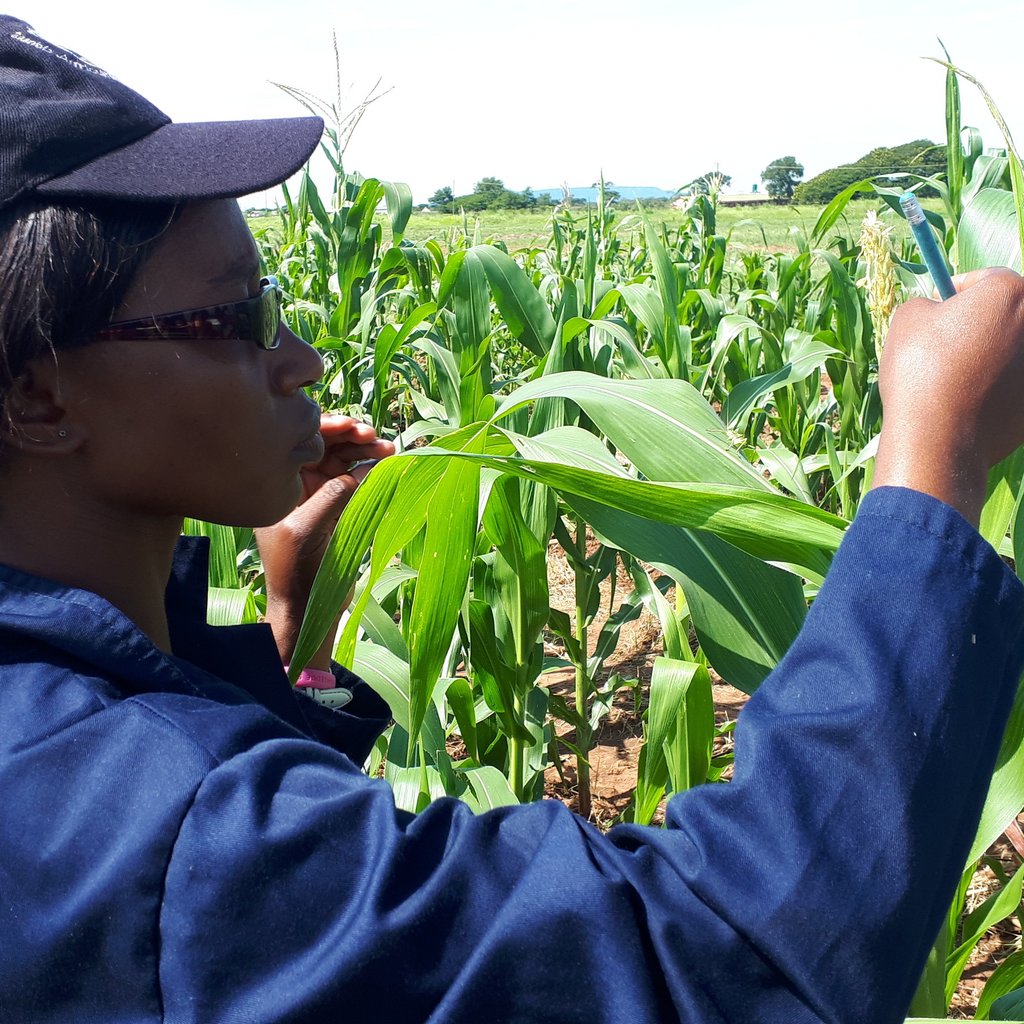Sustainable management solutions for the invasive fall armyworm
What do we see on the project photo?
A project staff member takes measurements from maize plants during a field trial, assessing the fall armyworm larval numbers and plant damage. In that trial, several biopesticides were successfully tested and several neem-based products in particular have shown good pest control and cost effectiveness.
How would you explain to a child what the project is doing?
The fall armyworm is a moth and its larval stages, the caterpillars, are feeding on many important crop plants, such as maize, that farmers are growing around the world. In this project we are trying to stop the fall armyworm from destroying these crops, using mostly natural / biological methods.
What is the project’s main objective?
To improve farmers’ livelihood through implementation of effective, sustainable, and environmentally friendly control options against the fall armyworm, a devastating pest of maize and other crops.
Why is the project important?
The fall armyworm is highly invasive in Africa and Asia and millions of smallholder farmers are suffering heavy losses in terms of yield and income. Huge amounts of generally broad-spectrum and toxic pesticides are now applied to fight this pest, threatening the environment and farmer health.
What has been the most positive moment during the project?
Generally, it was great to see the very high motivation on all levels to develop tools to control this devastating pest. A very positive moment was when we realized that effective and affordable biopesticides are just around the corner.
What have been the biggest challenges encountered in the project?
We tested an egg parasitoid (Telenomus remus) for biological control of the fall armyworm and found it very difficult to develop a cost-effective production system for this beneficial insect. Another challenge was to implement the correct experimental design and data collection method working together with our collaborators, without constantly being physically present in the field.
Which is the most important lesson learnt from the project?
Strong partnerships are important, but they need good coordination, in particular to ensure trials are implemented correctly and data collection is sound. Cost effectiveness and farmer needs have to be considered as early as possible in such endeavours to find sustainable pest control solutions.
About the project
Title:
Finding sustainable management solutions for the invasive fall armyworm
Contact:
Dirk Babendreier, ICM Advisor
Duration:
2018- (ongoing)
Funding institutions:
Directorate-General for International Cooperation (DGIS), Netherlands; Foreign, Commonwealth & Development Office (FCDO)
Implementing institutions:
CABI
Further information:
CABI news article
Journal articles (Insects):
The Efficacy of Alternative, Environmentally Friendly Plant Protection Measures for Control of Fall Armyworm, Spodoptera Frugiperda, in Maize
Telenomus remus, a Candidate Parasitoid for the Biological Control of Spodoptera frugiperda in Africa, is already Present on the Continent
Parasitoid Complex of Fall Armyworm, Spodoptera frugiperda, in Ghana and Benin

